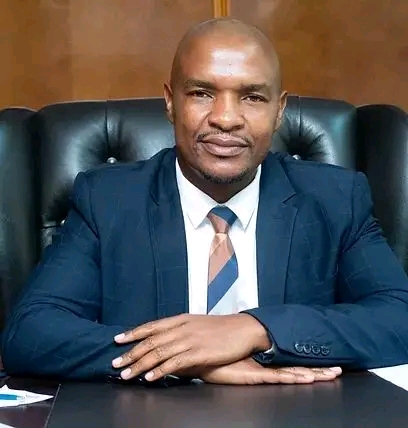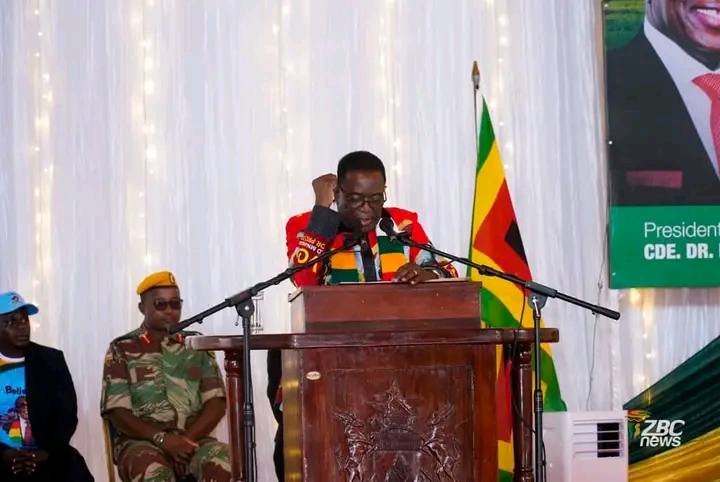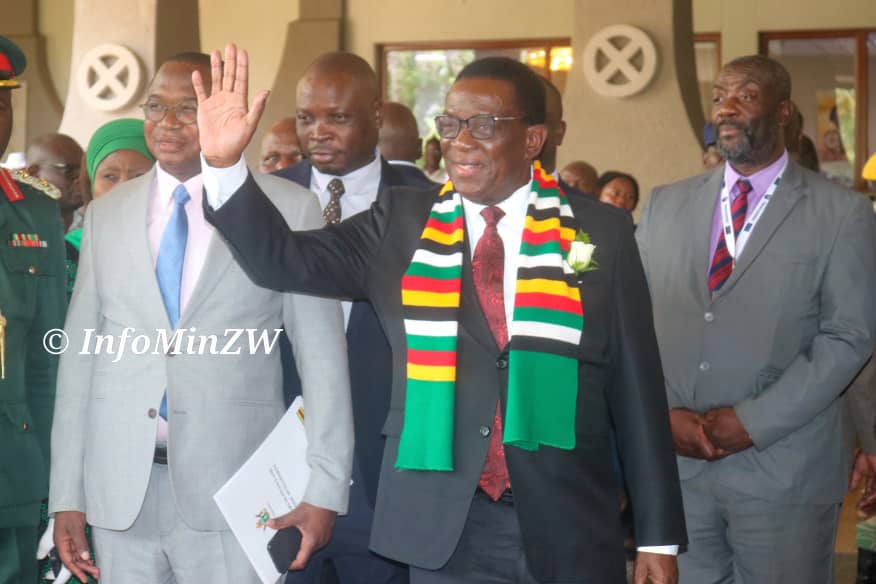
President Emmerson Mnangagwa arrives in Victoria Falls for the Zimbabwe Economic Development Conference
By George Swarei
At the 2024 Zimbabwe Economic Development Conference in Victoria Falls, President Emmerson Mnangagwa outlined the nation’s ambitious plans to drive economic transformation through sustainable investment and climate resilience. With the theme Building Resilience and Driving Economic Transformation, under Climate Change,”the conference emphasized Zimbabwe’s commitment to tackling the impacts of climate change while attracting key investments in renewable energy, agriculture, and innovation.
Zimbabwe is positioning itself as a regional hub for renewable energy, with a particular focus on lithium—a mineral crucial for the production of batteries and electric vehicles. President Mnangagwa challenged investors to capitalize on the country’s abundant clean energy resources by investing in infrastructure to support the value addition of lithium. The government’s commitment to reducing greenhouse gas emissions by 40% per capita by 2030, coupled with its support for green technologies, presents a significant opportunity for both local and international businesses.
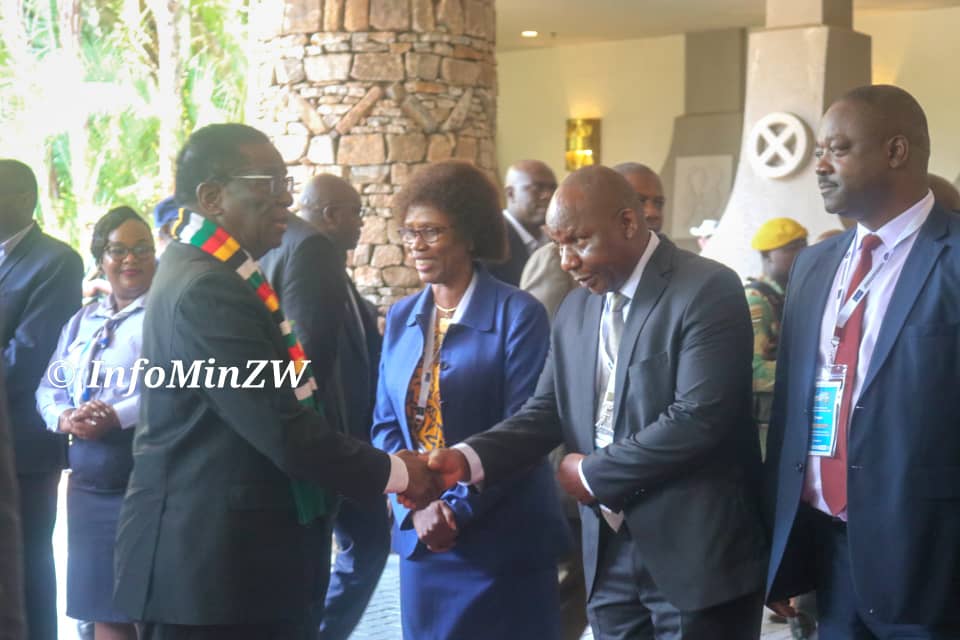
President Emmerson Mnangagwa is welcomed at the conference by Government Officials and Captains of industry and Commerce
“We are ready to receive investments that will propel Zimbabwe into the forefront of green energy production and innovation,” Mnangagwa said. With global demand for renewable energy on the rise, Zimbabwe’s potential as a major player in the clean energy sector makes it an attractive market for investors looking to enter or expand their presence in sustainable technologies.
The agricultural sector, particularly in rural areas, remains a central pillar of Zimbabwe’s economic strategy. The government is actively promoting rural industries based on the comparative advantages of each region. Mnangagwa highlighted the need for investment in agri-tech, climate-resilient crops, and rural infrastructure to enhance productivity and boost food security in the face of increasing climate challenges. With initiatives aimed at modernizing agriculture and creating rural jobs, investors in technology-driven agricultural solutions can expect strong returns.
“Our focus is on leveraging innovation, science, and technology to revitalize rural areas and create new industries that will propel growth and enhance incomes for rural communities,” Mnangagwa stated.
Zimbabwe’s innovation hubs and industrial parks are emerging as critical platforms for developing local solutions to national and global challenges. Mnangagwa called on investors to partner with the country’s youth and innovators to create home-grown solutions that address issues such as climate change and industrial modernization. These hubs are supported by government-backed funding, including the reconfigured Venture Capital Fund, which is designed to transform innovative ideas into viable, income-generating enterprises.
“We are building the infrastructure to foster creativity and innovation,” Mnangagwa said, noting that investors in technology and manufacturing will find abundant opportunities in Zimbabwe’s expanding innovation ecosystem.
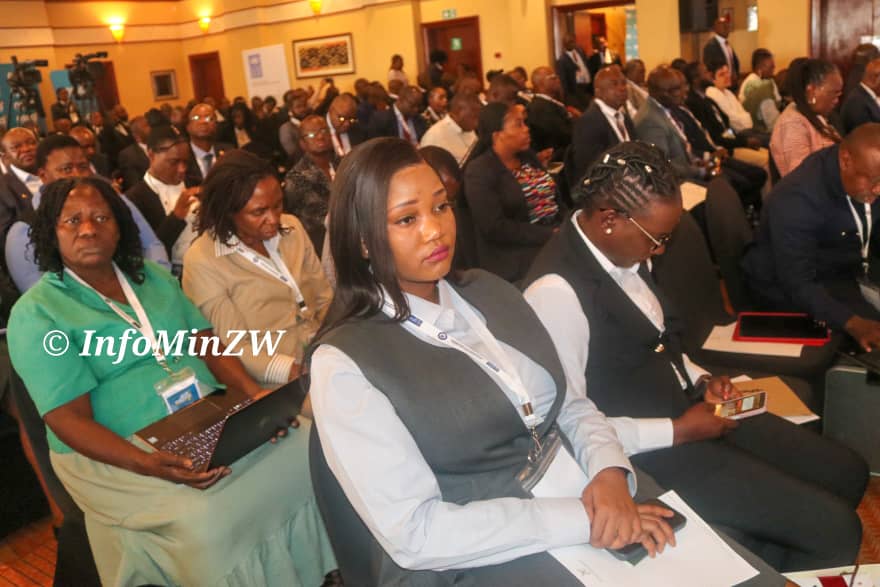
Participants at the investment conference
A key highlight of the President’s address was Zimbabwe’s new Carbon Credits Trading (General) Regulations under Statutory Instrument 150 of 2023. This framework will regulate carbon credit trading and create opportunities for businesses involved in sustainable development projects. Additionally, the government’s alignment with Article 6 of the Paris Agreement opens up new avenues for attracting climate finance. Mnangagwa urged investors to leverage the global climate agenda, stating, “This framework presents an unprecedented opportunity to attract finance for sustainable investment that will drive Zimbabwe’s economic growth.” Zimbabwe’s commitment to integrating climate risk assessments into its public investment guidelines further underscores its focus on creating a robust, climate-resilient economy.
As Zimbabwe scales up efforts to modernize its economy, Mnangagwa emphasized the need for international cooperation and broader investment engagement. He called for the expansion of platforms like the Zimbabwe Economic Development Conference into regional or international events to attract a wider pool of expertise and financing.
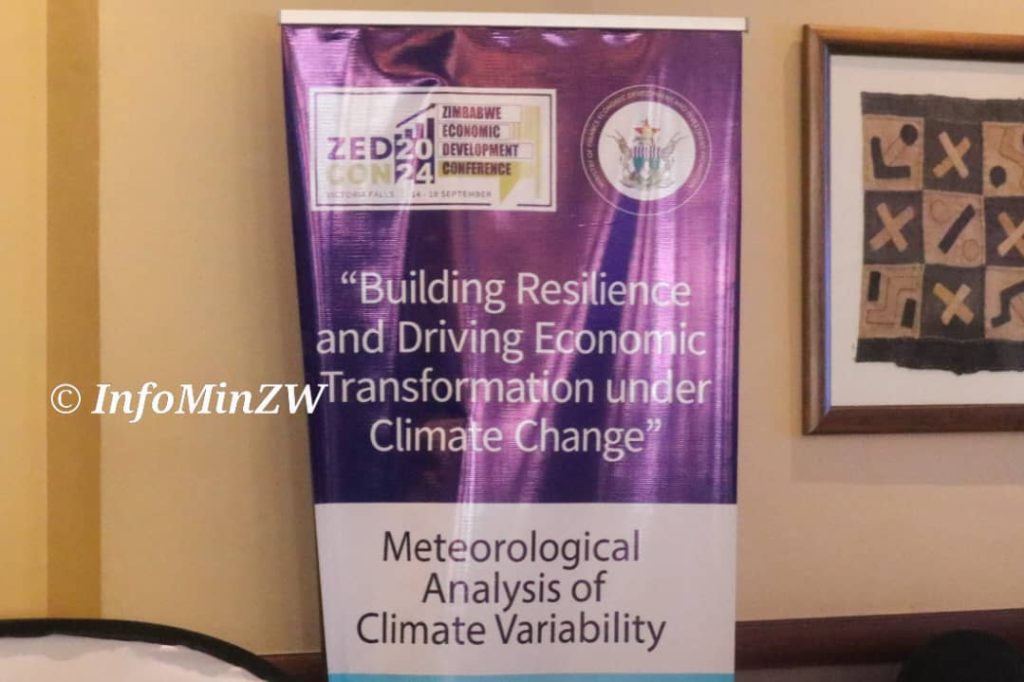
With the government focused on creating an enabling environment through proactive fiscal and monetary policies, the message is clear: Zimbabwe is open for business. By investing in renewable energy, agriculture, technology, and carbon markets, businesses can help drive Zimbabwe’s economic transformation while benefiting from the country’s vast resources and strategic vision for sustainable growth.
For investors looking to enter emerging markets, Zimbabwe offers a compelling combination of natural resources, government incentives, and a commitment to sustainable development. As the nation navigates the twin challenges of climate change and economic modernization, it remains a promising destination for forward-thinking investments.
